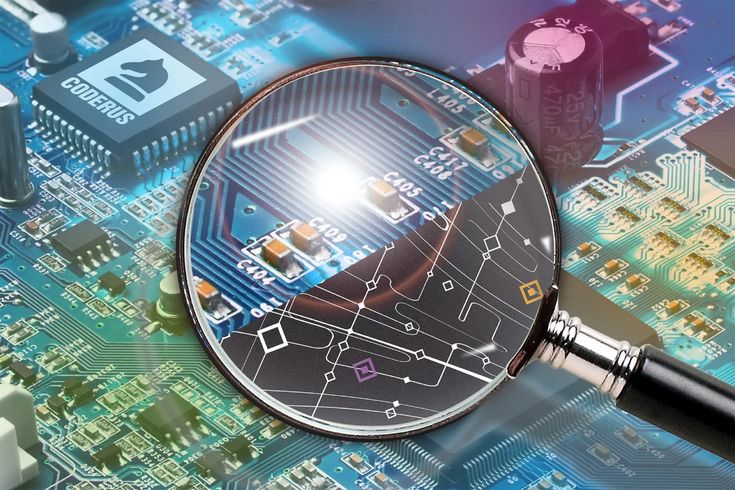Embedded systems form the backbone of countless modern technologies, seamlessly integrating hardware and software to perform specific tasks. With their widespread applications in industries such as automotive, healthcare, consumer electronics, and telecommunications, pursuing a career in embedded systems opens the door to a wide array of exciting job opportunities. Let’s explore the various roles you can obtain in this dynamic field.
1. Embedded Systems Engineer
- Role: Design, develop, and test embedded systems for various applications.
- Responsibilities:
- Writing and debugging embedded software.
- Designing hardware components.
- Integrating and testing system functionality.
- Industries: Automotive, aerospace, medical devices, and consumer electronics.
2. Firmware Developer
- Role: Develop low-level software that operates hardware devices.
- Responsibilities:
- Writing firmware for microcontrollers and microprocessors.
- Optimizing code for performance and memory usage.
- Ensuring compatibility with hardware components.
- Industries: IoT, robotics, telecommunications, and wearable technology.
3. IoT Developer
- Role: Create smart devices that communicate via the Internet of Things (IoT).
- Responsibilities:
- Developing IoT-enabled embedded systems.
- Implementing connectivity protocols like Bluetooth, Wi-Fi, and Zigbee.
- Ensuring secure data transmission.
- Industries: Smart homes, industrial automation, and healthcare.
4. Hardware Design Engineer
- Role: Focus on designing and developing hardware components for embedded systems.
- Responsibilities:
- Designing circuit boards and selecting appropriate components.
- Testing and validating hardware designs.
- Collaborating with software teams for system integration.
- Industries: Semiconductor, automotive, and defense.
5. Robotics Engineer
- Role: Develop embedded systems for robotics applications.
- Responsibilities:
- Programming robots to perform specific tasks.
- Integrating sensors and actuators with embedded systems.
- Testing and improving robot functionality.
- Industries: Manufacturing, healthcare, and military.
6. Automotive Embedded Engineer
- Role: Design and implement embedded systems for vehicles.
- Responsibilities:
- Developing software for electronic control units (ECUs).
- Integrating safety features like ABS and airbags.
- Ensuring compliance with automotive standards.
- Industries: Automotive and electric vehicle (EV) manufacturing.
7. Embedded Systems Consultant
- Role: Provide expertise to organizations developing embedded solutions.
- Responsibilities:
- Analyzing system requirements.
- Recommending appropriate hardware and software solutions.
- Troubleshooting and optimizing system performance.
- Industries: Various, depending on client needs.
8. Control Systems Engineer
- Role: Design and implement control systems for industrial and commercial applications.
- Responsibilities:
- Developing algorithms for process control.
- Integrating control systems with embedded hardware.
- Testing and maintaining system reliability.
- Industries: Industrial automation, energy, and transportation.
9. Test and Validation Engineer
- Role: Ensure embedded systems meet performance and safety standards.
- Responsibilities:
- Writing and executing test cases.
- Debugging and resolving issues.
- Documenting test results and recommending improvements.
- Industries: Aerospace, automotive, and consumer electronics.
10. Research and Development (R&D) Engineer
- Role: Innovate and develop new technologies in embedded systems.
- Responsibilities:
- Conducting feasibility studies for new projects.
- Prototyping and testing new designs.
- Collaborating with multidisciplinary teams to bring innovations to market.
- Industries: Technology, defense, and academia.
Skills Required for a Career in Embedded Systems
To excel in the field, aspiring professionals should develop the following skills:
- Programming Languages: Proficiency in C, C++, and Python.
- Hardware Knowledge: Understanding microcontrollers, microprocessors, and sensors.
- Problem-Solving: Strong analytical and debugging skills.
- Communication: Ability to collaborate effectively with cross-functional teams.
- Industry Standards: Familiarity with protocols like UART, SPI, and I2C.
Conclusion
A career in embedded systems offers diverse job opportunities across multiple industries. Whether you’re interested in software development, hardware design, or system integration, this field provides a platform to innovate and make a tangible impact. With the demand for embedded systems professionals on the rise, now is the perfect time to dive into this exciting and rewarding career path.

